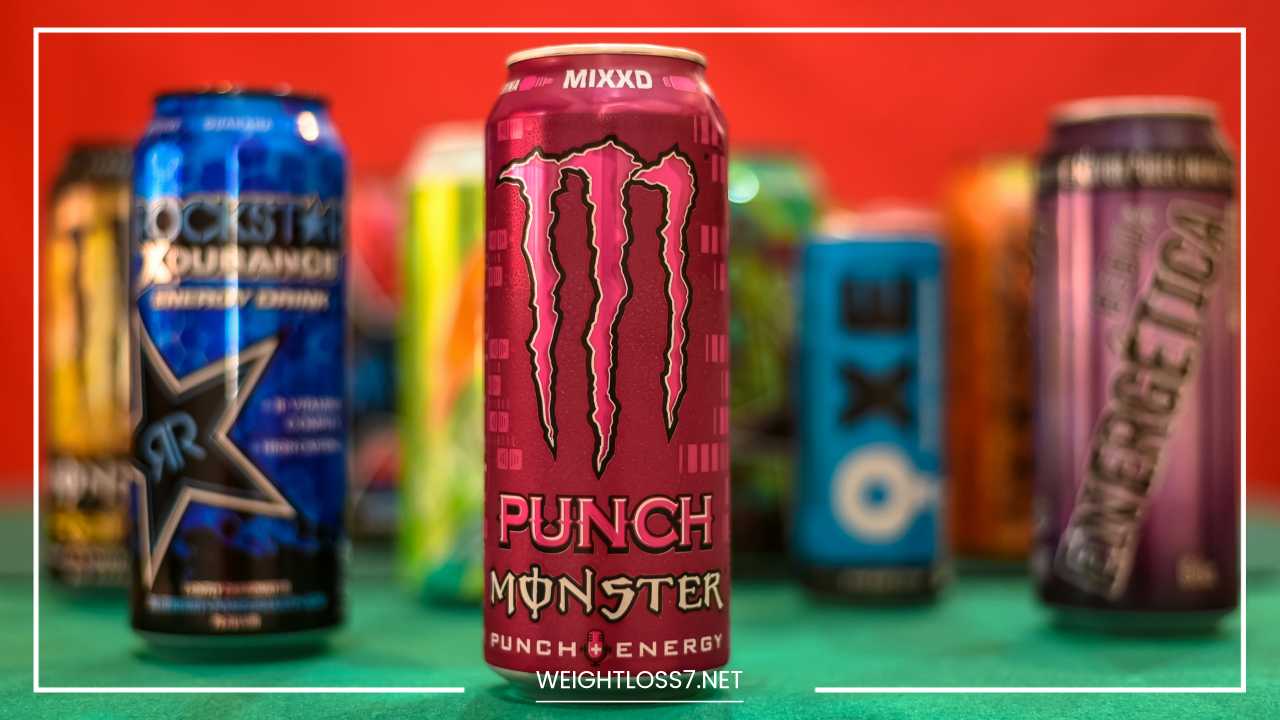Energy Drinks: Hype or Help? The Truth About Energy Drinks

Energy Drinks
Energy Drinks: Unveiling the Buzz – A Deep Dive into Benefits, Risks, and Alternatives
Energy drinks have become a cultural phenomenon. They’re plastered across billboards, endorsed by celebrities, and a staple in convenience stores worldwide.
Their vibrant cans and electrifying claims promise a potent energy surge, improved focus, and enhanced physical performance – a magic potion in a can for the modern, busy individual.
But what exactly lurks beneath the flashy marketing and potent punch? Are energy drinks a safe and effective way to combat fatigue, or are they a recipe for trouble?
This comprehensive exploration dives deep into the world of energy drinks, examining their ingredients, potential benefits, and significant health risks.
Demystifying the Can: A Breakdown of Ingredients
Unlike a simple soda, energy drinks are a complex concoction of ingredients, each playing a specific role in the promised energy boost. Here’s a closer look at the key players:
- Caffeine: The undisputed king of the can, caffeine provides the much-desired stimulant kick. However, the amount of caffeine in energy drinks can vary widely, often exceeding the amount found in a cup of coffee. This disparity can lead to unexpected and potentially harmful effects.
- Sugar: The fuel for an immediate energy surge, added sugars are another prominent ingredient. This readily available energy source comes at a cost, potentially contributing to weight gain, diabetes, and other health problems. Some brands offer sugar-free alternatives, often relying on artificial sweeteners, which raise their own set of concerns.
- Other Stimulants: A supporting cast of ingredients like guarana, taurine, L-carnitine, and B vitamins often make an appearance. Guarana, a plant containing natural caffeine, adds to the overall stimulant effect. Taurine, an amino acid, is present in high concentrations in the body but its role in energy drinks remains debatable. L-carnitine plays a part in energy production at the cellular level, but its effectiveness in energy drinks is not definitively proven. B vitamins are essential for energy metabolism, but deficiencies are rare in developed countries.
The Boosted Brain Myth: Examining the Science Behind Energy Drinks
Energy drink manufacturers often tout their products as cognitive enhancers, promising improved focus, alertness, and reaction time.
While the presence of caffeine does provide a temporary cognitive boost, the science behind the effectiveness of other ingredients remains murky.
Studies on guarana’s effectiveness are inconclusive, and taurine’s role in energy drinks is yet to be fully understood.
Additionally, the significant sugar crash that often follows the initial energy surge can negate any positive cognitive effects, leaving you feeling drained and less focused.
The Dark Side of the Buzz: Unveiling the Health Risks
The potential benefits of energy drinks are overshadowed by a multitude of health risks associated with their consumption, particularly when consumed in excess or by those with underlying health conditions.
Here’s a closer look at some of the most concerning issues:
- Heart Issues: The high caffeine content in energy drinks can lead to a significant increase in heart rate, blood pressure, and anxiety. This can be particularly dangerous for young people and those with pre-existing heart conditions.
- Sleep Disruption: Caffeine is a potent stimulant that can disrupt sleep patterns by interfering with the body’s natural sleep-wake cycle. This can lead to chronic fatigue in the long run, creating a vicious cycle of dependence on energy drinks to compensate for sleep deprivation.
- Dental Problems: The high sugar content in many energy drinks is a recipe for dental disaster. The acidic nature of these beverages, combined with the sugar content, can erode tooth enamel and contribute to cavities.
- Addiction Potential: The regular consumption of large amounts of caffeine can lead to dependence. When individuals stop consuming energy drinks, they may experience withdrawal symptoms like headaches, fatigue, and irritability. This can create a cycle of dependence, making it difficult to quit.
Beyond the Can: Exploring Alternatives for Sustainable Energy
While energy drinks may offer a temporary pick-me-up, a more sustainable and healthier approach to boosting energy is crucial. Here are some effective alternatives to consider:
- Prioritize Sleep: Getting adequate sleep is the cornerstone of sustained energy levels. Aim for 7-8 hours of quality sleep each night to wake up feeling refreshed and energized.
- Hydration is Key: Dehydration can lead to fatigue and decreased cognitive function. Staying hydrated throughout the day by drinking plenty of water helps your body function at its optimal level.
- Balanced Diet: A balanced diet rich in fruits, vegetables, whole grains, and lean protein provides your body with the essential nutrients it needs for sustained energy production. Avoid sugary snacks and processed foods that can lead to energy crashes.
- Exercise Regularly: Regular physical activity, even a brisk walk, can boost energy levels and improve overall health. Exercise increases blood flow, improves oxygen delivery to cells, and promotes the release of endorphins, natural mood elevators that can combat fatigue.
- Manage Stress: Chronic stress can zap your energy levels. Techniques like yoga, meditation, and deep breathing can help manage stress and promote relaxation, leading to improved sleep and overall well-being.
- Natural Energy Boosters: Certain natural foods can provide a sustained energy boost without the negative effects of energy drinks. Examples include fruits rich in antioxidants, nuts and seeds for healthy fats and protein, and dark chocolate for a dose of caffeine and mood-boosting compounds.
- Smart Snacking: Opt for healthy snacks throughout the day to maintain stable blood sugar levels and avoid energy crashes. Choose complex carbohydrates like whole-wheat crackers or fruits paired with nuts for a combination of sustained energy and healthy fats.
Who Should Avoid Energy Drinks Altogether?
While some healthy adults may enjoy an occasional energy drink in moderation, certain groups should avoid them altogether:
- Children and Adolescents: Their developing bodies are more sensitive to the effects of caffeine. Excessive caffeine intake can disrupt sleep patterns, hinder growth and development, and increase anxiety.
- Pregnant and Breastfeeding Women: Caffeine can cross the placenta and reach the developing baby, potentially leading to health problems. It can also pass through breast milk and affect the baby’s sleep patterns.
- People with Certain Health Conditions: Those with heart problems, anxiety disorders, diabetes, or high blood pressure should avoid energy drinks due to the potential for worsening their condition.
The Future of Energy Drinks: Trends to Watch
The energy drink market is constantly evolving, with manufacturers adapting to consumer preferences and potential regulations. Here are some key trends to keep an eye on:
- Focus on Natural Ingredients: Consumers are increasingly seeking out energy drinks with natural ingredients and less sugar. Brands are responding by offering options with botanical extracts, green tea, and other natural stimulants.
- Functional Drinks: A new wave of “functional drinks” is emerging, each catering to specific needs like improved focus, relaxation, or sleep support. These drinks often contain a blend of vitamins, minerals, and botanical extracts tailored to their intended function.
- Regulation: Concerns regarding the high caffeine content and marketing practices targeting young people may lead to increased regulation of the energy drink industry. This could involve stricter labeling requirements, limitations on caffeine content, and restrictions on advertising to specific age groups.
The Bottom Line: A Responsible Choice for Sustainable Energy
Energy drinks can provide a temporary energy boost, but with significant downsides. For a sustained and healthy approach to combating fatigue, prioritize sleep, a balanced diet, regular exercise, and stress management techniques.
Consider natural energy-boosting foods and healthy snacking habits for a long-term solution.
Remember, true and sustainable energy comes from within, not from a can. Make informed choices about your health and well-being, and choose strategies that empower your body to function at its optimal level for the long haul.
Additional Considerations
This comprehensive analysis has explored the world of energy drinks, their ingredients, potential benefits and significant health risks. It has also highlighted alternative strategies for sustainable energy. Here are some additional points to consider:
- The Role of Individual Differences: People have varying sensitivities to caffeine and other ingredients in energy drinks. What may cause a jittery feeling in one person might have little effect on another. It’s crucial to be aware of your own body’s response and adjust consumption accordingly.
- Long-Term Health Effects: More research is needed to fully understand the long-term health effects of regular energy drink consumption. However, the potential risks highlighted in this article warrant caution and a focus on healthier alternatives for sustained energy.
- Responsible Marketing: The marketing of energy drinks often downplays the health risks and glamorizes excessive consumption, particularly targeting young people. Consumers need to be critical of these marketing tactics and make informed choices based on accurate information.
By understanding the science behind energy drinks, their potential benefits and significant drawbacks, you can empower yourself to make informed choices about your health and well-being. Choose sustainable and healthy strategies to fuel your body and mind for the long term.
The Societal Impact of Energy Drinks: A Cause for Concern?
Beyond the individual health risks, energy drinks raise concerns about their broader societal impact. Here’s a closer look at some key issues:
- Impact on Children and Adolescents: The easy availability and flashy marketing of energy drinks can be particularly alluring to young people. However, their developing bodies are more susceptible to the negative effects of caffeine and other stimulants. Excessive consumption can lead to sleep disturbances, affect concentration in school, and contribute to anxiety and hyperactivity.
- Promoting an Unhealthy “Quick Fix” Culture: Energy drinks perpetuate the idea of a quick and easy solution to fatigue, often through artificial means. This undermines the importance of healthy sleep habits, a balanced diet, and stress management as the foundation for sustained energy.
- The Potential for Addiction: The regular consumption of large amounts of caffeine can lead to dependence, making it difficult to function without an energy drink. This can be particularly concerning for young people, potentially impacting their ability to manage their energy levels in a healthy way.
- Athletic Performance and Safety: While some athletes use energy drinks for a perceived performance boost, the potential risks outweigh the benefits. The combination of high caffeine content, dehydration, and strenuous exercise can lead to serious health consequences, including cardiac issues and heatstroke.
Regulation and Public Health Measures
There’s growing pressure on governments and regulatory bodies to implement stricter measures regarding energy drinks. This could involve:
- Age Restrictions: Limiting the sale of energy drinks to minors, similar to regulations on alcohol and tobacco products.
- Clear Labeling: Requiring clear and accurate labeling of caffeine content and other ingredients, along with warnings about potential health risks.
- Marketing Restrictions: Curbing marketing tactics that target young people and downplay the health risks associated with energy drinks.
- Public Education Campaigns: Raising awareness about the potential risks of energy drinks and promoting healthy lifestyle choices for achieving sustained energy.
Final Word: A Call for Informed Choices and a Focus on Wellness
Energy drinks offer a temporary solution to fatigue, but at a potential cost to your health and well-being. By understanding the ingredients, potential benefits, and significant health risks, you can make informed choices about your consumption.
Public health measures and responsible marketing practices are crucial in protecting vulnerable populations, particularly children and adolescents.
Ultimately, the path to sustained energy lies in prioritizing sleep, a balanced diet, regular exercise, and stress management techniques.
These strategies empower your body to function optimally for the long term, fostering overall health and well-being.
Remember, true energy comes from within. Invest in your health and choose a sustainable approach to feeling your best.

















